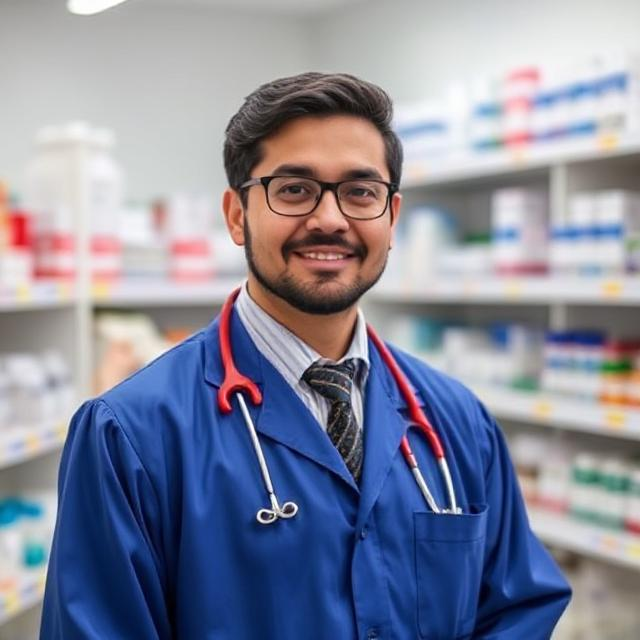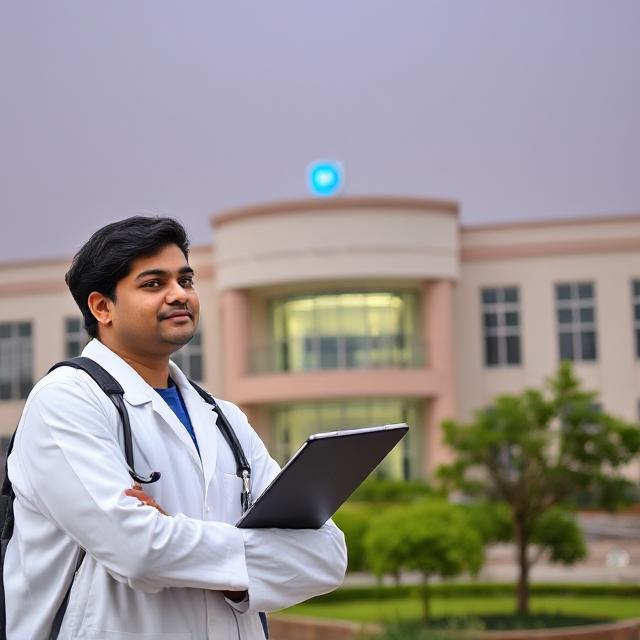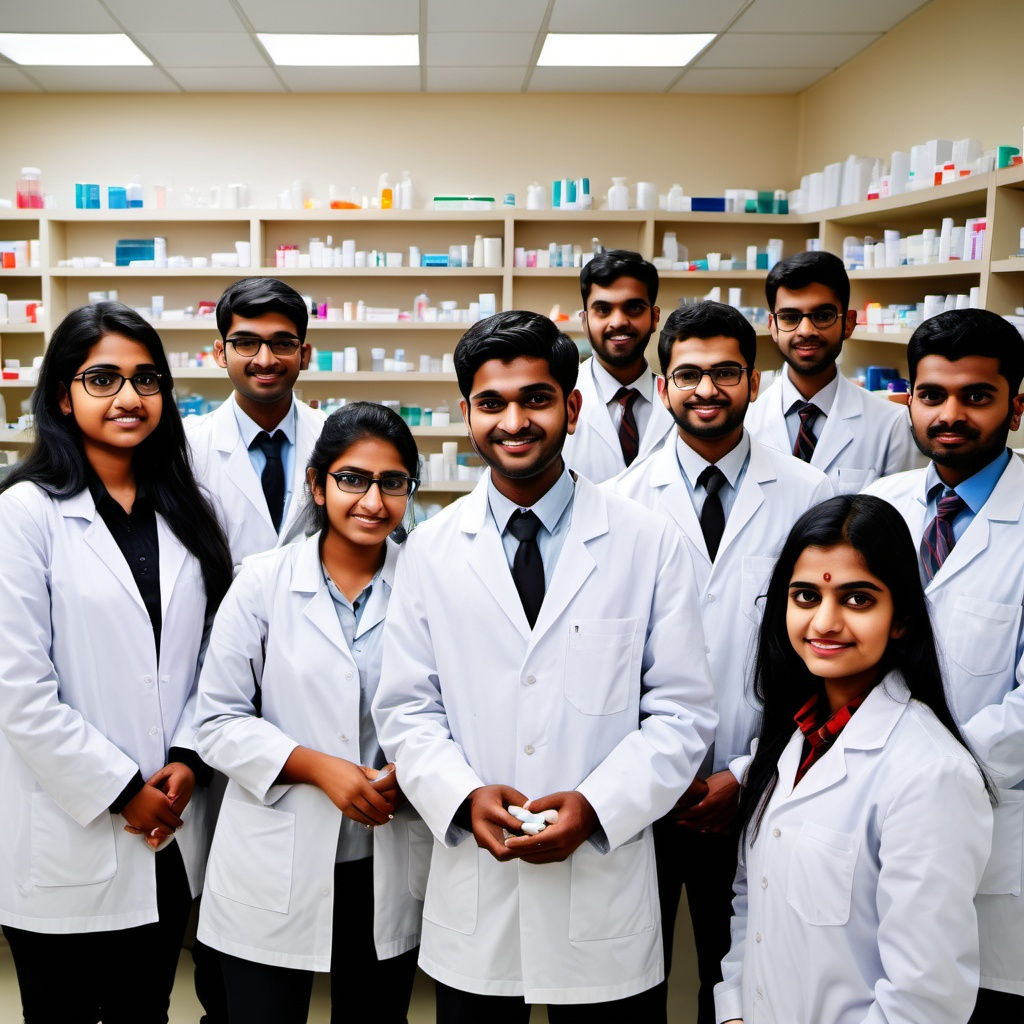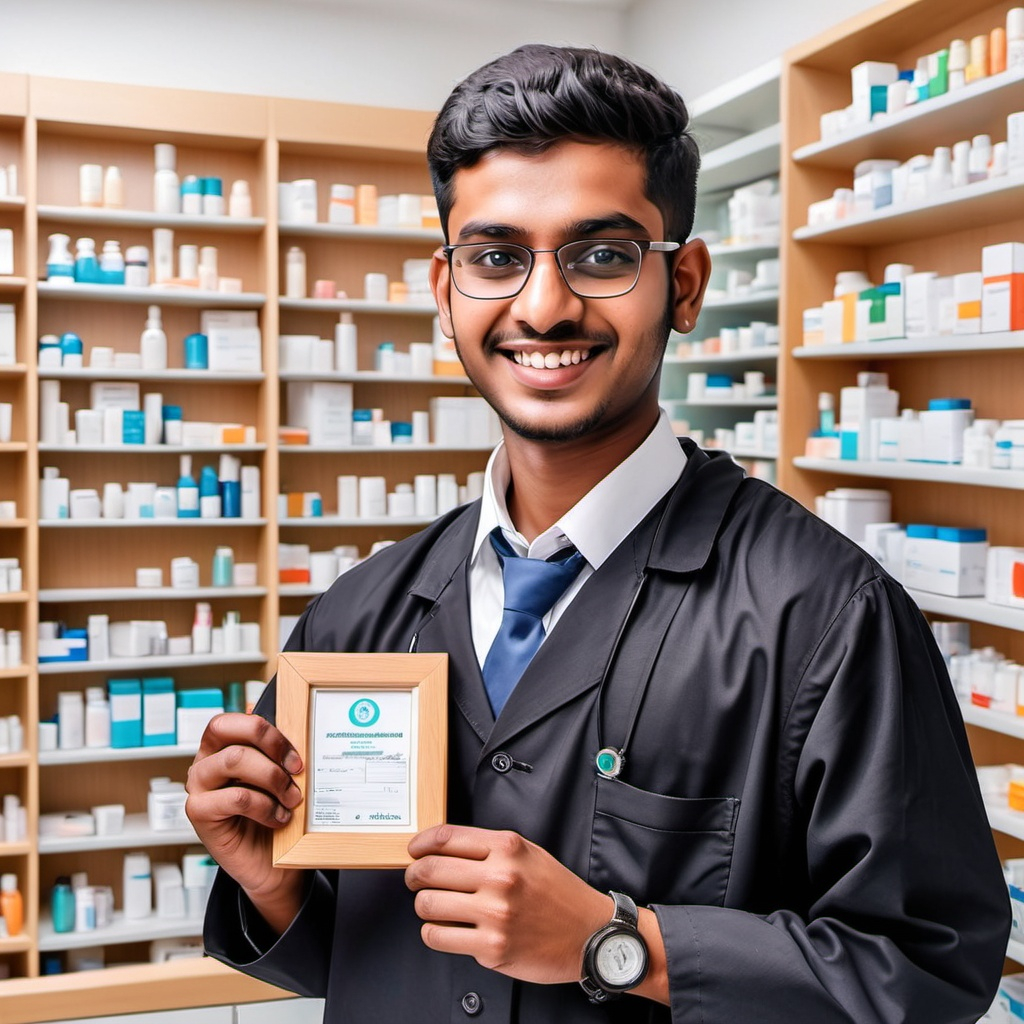Latest News
Pickup New Updates
The Pharm.D (Doctor of Pharmacy) program is a professional doctoral course that equips students with the knowledge and skills required to become clinical pharmacists. This blog answers some of the most commonly asked questions about the Pharm.D and Pharm.D (Post Baccalaureate) programs.
- 12-Apr-2025
MBBS or Bachelors of Medicine or Bachelors of Surgery is an undergraduate course in India that allows one to practice as a medical professional. • The course is done for a period of 5.5 years including the period of internship and provides an insight into the different categories of medicine like pathology, anatomy and surgery. Whereas, Pharm D or Doctor of Pharmacy is a 6 years course that allows a student to earn theoretical as well as practical exposure to the different aspects of medicine, it’s making and the practical knowledge of it. • There is an internship period a year is included in the 6-years tenure of the course along with deep-dive knowledge of pharmacy.
- 12-Apr-2025
The scope of Pharm. D in India and abroad has expanded significantly with the advancement of healthcare, pharmaceutical research, and patient-centered care. In India, Pharm. D graduates are playing a vital role in clinical pharmacy, hospital settings, pharmaceutical industries, community pharmacies, and academic and research institutions. Their training equips them to contribute to patient safety, medication management, and public health. Internationally, Pharm. D professionals are in demand in global pharmaceutical industries, clinical research, healthcare institutions, regulatory affairs, and academic fields. The degree opens up diverse opportunities both in professional practice and further education, making it a valuable qualification in the evolving global healthcare landscape.
- 12-Apr-2025
The Pharmacy Practice (Amendment) Regulations, 2021, issued by the Pharmacy Council of India and approved by the Central Government, outline the expanded scope of work for Pharm D graduates under the Clinical Establishments Act, 2022. These regulations define the roles and responsibilities of Drug Information Pharmacists and Clinical Pharmacists in healthcare settings. A Clinical Pharmacist is responsible for optimizing medication use, promoting health and disease prevention, ensuring compliance with clinical procedures, analyzing drug interactions and side effects, and maintaining clinical records. They work collaboratively with physicians and healthcare teams to improve patient outcomes. The regulations also specify required qualifications, including a Pharm D degree, training in formulary development and ambulatory care, and strong knowledge in pharmacy disciplines. Clinical Pharmacists are expected to contribute to drug utilization reviews, patient counseling, and rational prescribing, while also adhering to standard operating procedures and statutory guidelines. Their role emphasizes improving the efficiency and quality of healthcare delivery and supporting the nation`s health economy.
- 12-Apr-2025
Pursuing a Doctor of Pharmacy (Pharm.D) degree is a rewarding choice for students passionate about healthcare and medicines. However, academic qualifications alone aren`t enough—students must also possess or develop a variety of essential skills that enhance learning and lead to a successful pharmacy career. In this blog, we explore the key skills needed to excel in the Pharm.D program and how they contribute to a fulfilling role in the pharmaceutical industry.
- 05-Apr-2025
In today`s healthcare-driven world, pharmacists play an essential role in improving patient outcomes, guiding drug therapy, and ensuring safe medication use. One of the most prestigious degrees in the pharmacy field is the Doctor of Pharmacy (Pharm.D). It not only offers diverse career options but also gives an edge in the healthcare job market. If you`re considering a career in pharmacy, here’s why pursuing a Pharm.D degree could be your best decision.
- 05-Apr-2025
Choosing the right Pharm.D college is a crucial step toward building a successful career in the pharmaceutical and healthcare industry. With several government and private institutions across India offering Pharm.D programs, selecting the best one can be overwhelming. This guide will help you understand the key factors to consider before choosing the right college for a Doctor of Pharmacy (Pharm.D) degree.
- 05-Apr-2025
Pharmacy is no longer limited to dispensing medicines. With a Doctor of Pharmacy (Pharm.D) degree, students step into a dynamic and evolving healthcare industry where they contribute directly to patient care, clinical decisions, research, and drug safety. If you’re wondering about the future scope after Pharm.D in India, this blog will give you all the insights into career paths, higher studies, job opportunities, salary expectations, and more.
- 05-Apr-2025
The Doctor of Pharmacy (Pharm.D) program is a professional doctoral degree in pharmacy that spans six years, including five academic years with ten semesters and one year of internship/residency training. The course is designed to produce expert clinical pharmacists equipped with knowledge in patient care, medication therapy, and health care systems.
- 05-Apr-2025
The entrance examination is the primary method of Pharm.D admission to the best universities. Each year, the admissions procedure takes place between May and June. In the event of admission, however, the candidates must take the following actions.
- 05-Apr-2025
Pharm.D. (Doctor of Pharmacy) is a pharmacy degree program approved by the Indian government in 2008, with the Pharmacy Council of India serving as the regulating body. This course was created to prepare pharmacists to be valuable healthcare team members regarding patient care. Pharm.D. is a 6-year curriculum in which the first five years are spent studying, and the sixth year is spent doing an internship in a hospital. Pharm.D. (Post Baccalaureate) is a three-year curriculum that consists of two years of study and one year of hospital internship.
- 05-Apr-2025
Pharm.D is a 6 years doctoral programme which includes 5 years of study and 1 year internship. The course mainly guides the students to help the patient with drug information, and the make them understand the importance of therapy given, and also to help the Physicians in choosing the right drug to the patient, avoid any irrational drug use.
- 05-Apr-2025
The journey after completing +2 class with medical or non-medical stream is a pivotal moment in every student`s life, and there are numerous courses that students can choose from. But still, some of the most popular courses require them to appear for the National Eligibility Cum Entrance Test (NEET). And, preparing as well as cracking the NEET exam is somehow a scary part for some of (if not all) the aspirants. Therefore, to cut down such stress on the students, we are listing the top 10 medical courses after 12th without NEET exam. These programs not only provide theoretical knowledge but also emphasize practical skills through internships and hands-on experiences, ensuring graduates are well-equipped for the dynamic and challenging field of healthcare.
- 04-Apr-2025
pharmacist is a healthcare professional who is a expert on pharmaceutical drugs and how they act to fight disease and improve the heath of the patient. Pharmacists are responsible for the implementation of drug therapy with the intention of improving the quality of a patient’s life. Some examples of such improvements include curing diseases, reducing or eliminating a patient’s symptoms, slowing the process of a disease, and preventing disease. A pharmacist works with patients and other healthcare professionals in order to design, implement, and monitor a drug therapy plan specifically designed for that patient. Not only do pharmacists advise doctors and patients on prescription drugs, but they also provide information on the best medications that can be purchased “over the
- 28-Mar-2025
by Gina Garrison, Pharm.D. Associate Professor, Albany College of Pharmacy and Health Sciences One of the most trusted and accessible health care professionals, pharmacists are the medication experts. But few understand the educational background and diverse opportunities available in pharmacy, or how the profession is evolving in many exciting ways.
- 28-Mar-2025














